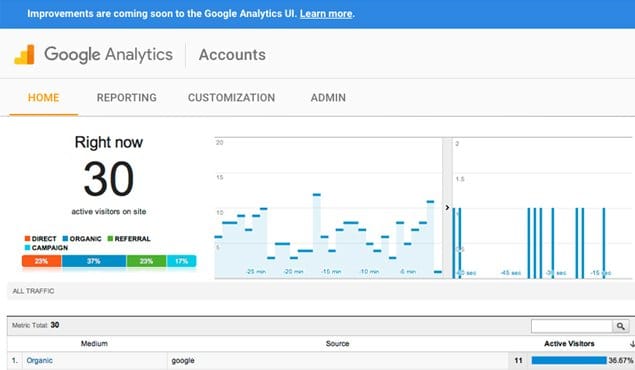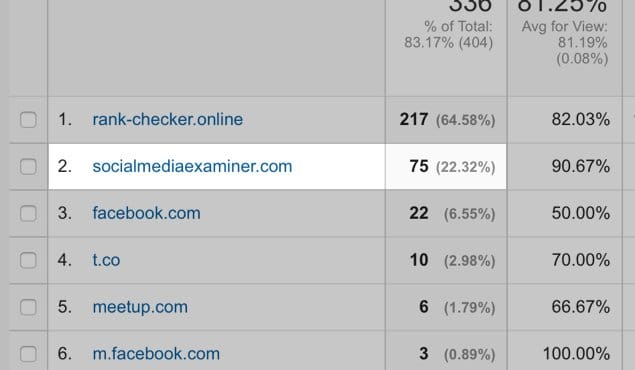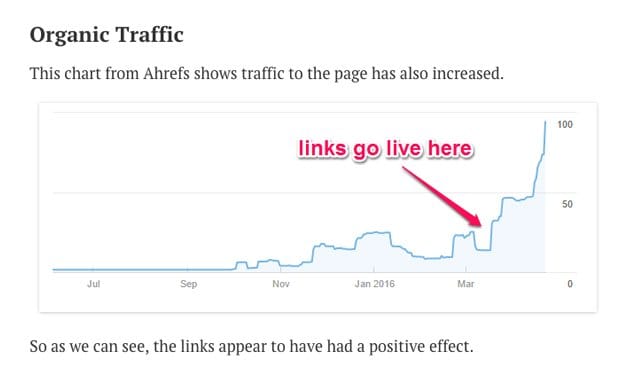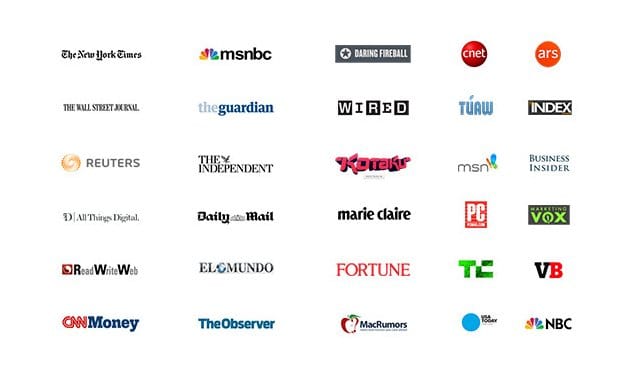Guest blogging is a difficult action to quantify. Usually, when discussing a marketing technique, we boil it down in terms of profit and return on investment. With guest blogging, both sides of the equation get a little muddy, and many of the benefits are hard to track.
On the cost side, for example, how much does a guest post cost? If you’re thinking purely in monetary terms, all you have to go on is how much it costs to buy the copy from a writer. You shouldn’t be posting on sites that charge for guest posts, and you shouldn’t be bribing people to get on their site, so you don’t have a lot of monetary tracking available.
You can track other kinds of costs and try to estimate them. How long did it take to get a contact with the site, and how well were you able to take advantage of them to get something published? Have you published something on the site before? The cost of opportunity exists, but is impossible to boil down in a way it can be plugged into a spreadsheet.
Then you have the benefit site. What are you getting from the guest post? If you’re getting a link, you can track the value of that link in terms of the traffic it refers, as well as some bit of SEO value if you monitor your ranking in a vacuum. There are other elements you can’t track, though. Your brand mention might make other people trust you more or be more willing to subscribe, but you can’t know if it was that mention or something else that influenced their decision. The link might influence someone else who read the post to link to you on their blog, but you have no way of knowing whether they found the link through your guest post or not. There are a lot of more or less intangible benefits to spreading your name and link around the web.
Measuring Traffic
If you’re going to pay attention to any specific, tangible metric when guest posting, it almost has to be traffic, right? It’s one of the only things you can accurately measure. You simply need to make sure the link you include in the guest post has tracking parameters and that you’re able to differentiate between traffic coming from that site and traffic coming from others.
There are, however, a wide range of factors that go into what your expectations should be. How much traffic could you get from a guest post? It all depends.
What site are you posting on? If you’re posting on a site with a ton of traffic every day, you’re liable to get a lot more visitors than if you’re posting on a site that gets a handful of visitors a week. As a marketer, I would prefer to post on sites like Moz, Entrepreneur, and other such sites rather than Bob’s SEO Shack or Buzzfeed. Those are two very disparate examples; one of them is assumed to have no traffic, because I made it up. The other has a ton of traffic, but the people visiting aren’t likely to care about marketing whatsoever, and thus aren’t likely to click on a source link.
Where is the link within the guest post? A link in the content is better than a link in the bio. A link in the bio is better than a half-size text link in the footnote. The more visibility and the more importance the link gets within the content, the better it will perform.
What is the link pointing to? Having good content at the end of the road is essential. This is why you should never link to your homepage or to a sales-focused landing page; people are a lot less likely to find value in that sort of destination. You want deep case studies, you want tutorials, you want references. You want the kind of content that cycles endlessly in an evergreen loop of value.
What is the anchor text of the link? The less generic, the better. “Click here” isn’t going to get me to click. You don’t need to use the exact title of the post, and you shouldn’t use an exact match keyword, but you should focus on something enticing. Something that promises the value you know to be at the other end.
How relevant is the destination to the source post? Obviously, this is a big one. I don’t care how valuable your tutorial on shining shoes is, if you’re linking to it in a blog post about cat grooming, absolutely no one is going to click it. You want a link to that kind of post in a blog post about fashion, about preparing for a wedding, or something that involves wearing fancy shoes. This is also important for SEO value from the link, assuming it’s a followed link.
How is the host site promoting the post? If the host site isn’t doing any promotion, you’re going to see less traffic than if they are promoting it. The more heavily they promote it, the better off you’ll be.
How are you promoting the post? The same deal goes here. The more you promote the guest post, the more you can get circuitous referral traffic from that promotion.
Is the link kept alive with tracking parameters? This happens surprisingly often; you push a link into your post, and the host site keeps it up for a few weeks, then it disappears. They expect you to have stopped paying attention, and they remove the link so it doesn’t potentially hurt them in the future. This is a sign that you should probably call them out on it, and probably stop working with them.
All of these are important factors that color the expectations you should have going into guest posting.
Tracking Traffic and Metrics
There are three metrics you want to track for the guest posts you publish. Assuming you have a way to identify traffic coming from a specific link, like URL parameters, you can track direct traffic. This is the most obvious source of traffic, and it will be a quick pulse of views for a week or two while the guest post is published and goes through promotion, followed by a tapering off as new posts cut it out.
The second source of traffic you want to monitor is just your overall site traffic. There are people who will search for your name or your brand, or who will link to you on other sites because of your guest post, or who will arrive at your site from other directions. When you publish a guest post, compare your traffic numbers before and after, and compare that to your recorded direct traffic. This will show you an idea of how much indirect traffic you get.
The third thing to monitor is social shares of the post you linked to in your guest post. It’s not a direct indication of traffic, but it shows you if people are sharing your content more than they normally do; if so, it’s influence from the guest post link.
Looking at Numbers
The actual traffic numbers you can expect will vary wildly, as I’ve mentioned above. For example, in this case study from Ahrefs, organic traffic to the site in question increased 20%… over the course of a year, in an ongoing campaign of guest posting across numerous domains. As for direct traffic? They don’t give specific numbers, but they mention that traffic came in a single short-lived burst from each guest post.
BloggerJet, written by Tim Soulo, has a similar experience. He, and the people who guest post and who he interviewed, had generally the same impression. Direct traffic from the links in guest posts is pretty minimal. Some posts only brought in a few dozen views, and that’s coming from reasonably high profile sites. Heck, a guest post on Business Insider only brought in 531 hits.
The results are clear. If all you want is direct traffic, you’re not going to be getting much from guest posting. The fact is, most people don’t click and browse around anymore. They get their links from social media, and they read the content. Sometimes they will click a link from that post, but it won’t go very deep. They take what you have to say at face value. The presence of the link is important, because it shows you have a source, even if they don’t care to go and fact check it. The actual traffic, though, is almost insignificant.
If Not Traffic, Then What?
So if you’re guest blogging for traffic, you’re going to be disappointed. The question then becomes, what do you want to get out of guest blogging, and what should you focus on measuring? Traffic alone is not going to be valuable.
The first and most obvious source of value is the backlink. However, this is inconsistent value. For one thing, it’s hard to measure the value of any individual link. It’s very rare that a single link will have a tangible effect on your site’s ranking. It’s a diverse link portfolio and the presence of good links on good sites that helps you. Worse, link value is inconsistent because of the existence of nofollow and the way so many people are afraid of guest posting. Links are valuable to have regardless, but they also shouldn’t be the core focus of your guest posting campaign.
Perhaps one of the biggest benefits you get, though, is the ability to add the logo of whoever published you to your site as social proof. You have, after all, been seen on those sites, so you can add them to the list of publications who have published your work. It’s quite a bit of credibility.
The actual value of guest posting tends to come from slightly less tangible sources. One, that I’m sure you’ve experienced and discovered throughout your own experiences, is the increase in exposure and credibility that comes from being published on larger, high profile sites. Instead of being Bob, Writer at Bob’s SEO Shack, you’re Bob, Writer at Business Insider. People recognize your name and attach your brand to the quality of content they’re used to seeing on that site. After all, they wouldn’t accept you if you weren’t high quality.
This can open up into broader relationships. People can see you and maybe not specifically like the post you wrote, but they may like your style and they may like your depth. They could reach out to you for a book deal, as they did Jeffrey Kranz in the BloggerJet article I linked above. They might even realize your business is perfect for them and will adopt it with their business, or reach out for some kind of corporate partnership. You never know what opportunities open up.
It’s all very tangible benefit, but it’s hard to tie it to any one guest post. Or, rather, it’s hard to tie expectations to a guest post. You can’t get a book deal out of a guest post on Forbes and say “well, every time I post on Forbes I get a book deal.” It doesn’t work that way, and if you go into your second guest post expecting to publish a book, you’ll be disappointed.
Finally, you should never underestimate the power of relationships. Even if you don’t get much traffic or value out of a guest post, you still form a relationship with an editor, and that relationship can be a connection that can leapfrog into other things. Maybe they won’t even publish you again, but you can use them as a reference, or they can recommend you to someone else they know. Heck, you can even just @ them on Twitter as someone who helped you in your career, you get a little bit of influencer marketing value out of it. Relationships are perhaps the most important part of the whole thing.
 ContentPowered.com
ContentPowered.com







